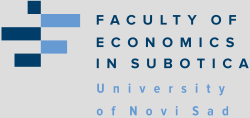„Word-of-mouth is Still Most Important” – How Rural Tourism Providers Conceptualize Stakeholder Engagement Strategies in a Digitalized Era
DOI:
https://doi.org/10.46541/978-86-7233-380-0_59Keywords:
Rural Tourism Providers, Stakeholder Engagement Strategy, Digitalization, Mental Map, TrustAbstract
Globalization and digitalization affect the individual rural tourism provider’s relationship with the
stakeholders (e.g. customers, suppliers). For example, customers compare prices online, book their holidays via
distribution platforms (e.g. booking.com) and rate their holidays on a farm anonymously via online websites. The
increasing digitalization of provider-customer relationships may lead to resistance against digitalization among rural
tourism providers due to persistent “traditional” beliefs and “mental maps”, but also to new stakeholder engagement
strategies, e.g. around digital platforms. However, a research gap on the views and experiences of individual rural
tourism providers and their preferred (digital) stakeholder engagement strategies exists.
Hence, in this paper our research goal is to conceptualize the effect of digitalization on stakeholder engagement
strategies in “rural tourism”. We base the conceptual analysis on a revision of the theoretical building blocks rural
tourism, stakeholder engagement and mental maps in order to derive propositions for further empirical research and
for a (comparative) case study-analysis of rural tourism providers in Austria and Serbia. Our literature review
highlights the relationship between the tourism provider and the customers as key stakeholders; it also sheds lights on
(potential) differences in the understanding of rural tourism across sub-concepts and countries: We conceptualize how
rural tourism providers offer personalized experiences and close interaction with the rural life through various culturespecific
sub-concepts like slow tourism, agritourism, ecotourism etc. In the case of rural tourism, we argue that
establishing relationships via word-of-mouth and maintaining long-term intensive relationships built on reciprocal
trust is crucial, as this type of tourism builds – to a great extent – on extensive interactions between the local
community and the tourist. Moreover, we conceptualize how existing “mental maps” may act as a barrier to adopt
new forms of distribution channels and customer contact despite a potential competitive advantage (e.g. through
booking.com and holiday-on farm websites). Based on this literature review we derive five propositions for further
research on rural tourism providers in Austria and Serbia. Amongst other propositions, we argue that the
understanding and the (digital) strategies around “rural tourism” differ among the countries. Moreover, we propose
that the more successful the rural tourism providers have been with traditional/classical communication channels the
less likely it is that they will embrace digitalization in their stakeholder engagement strategies. Finally, we propose
that new digital forms of stakeholder engagement strategies (e.g. via platforms) have to be combined with “traditional”
engagement strategies (e.g. word-of-mouth) in order to gain a competitive advantage. We close the analysis with a
brief outlook on preliminary results of our study, which point to the high importance of “traditional” strategies (wordof-
mouth) for attracting customers.



